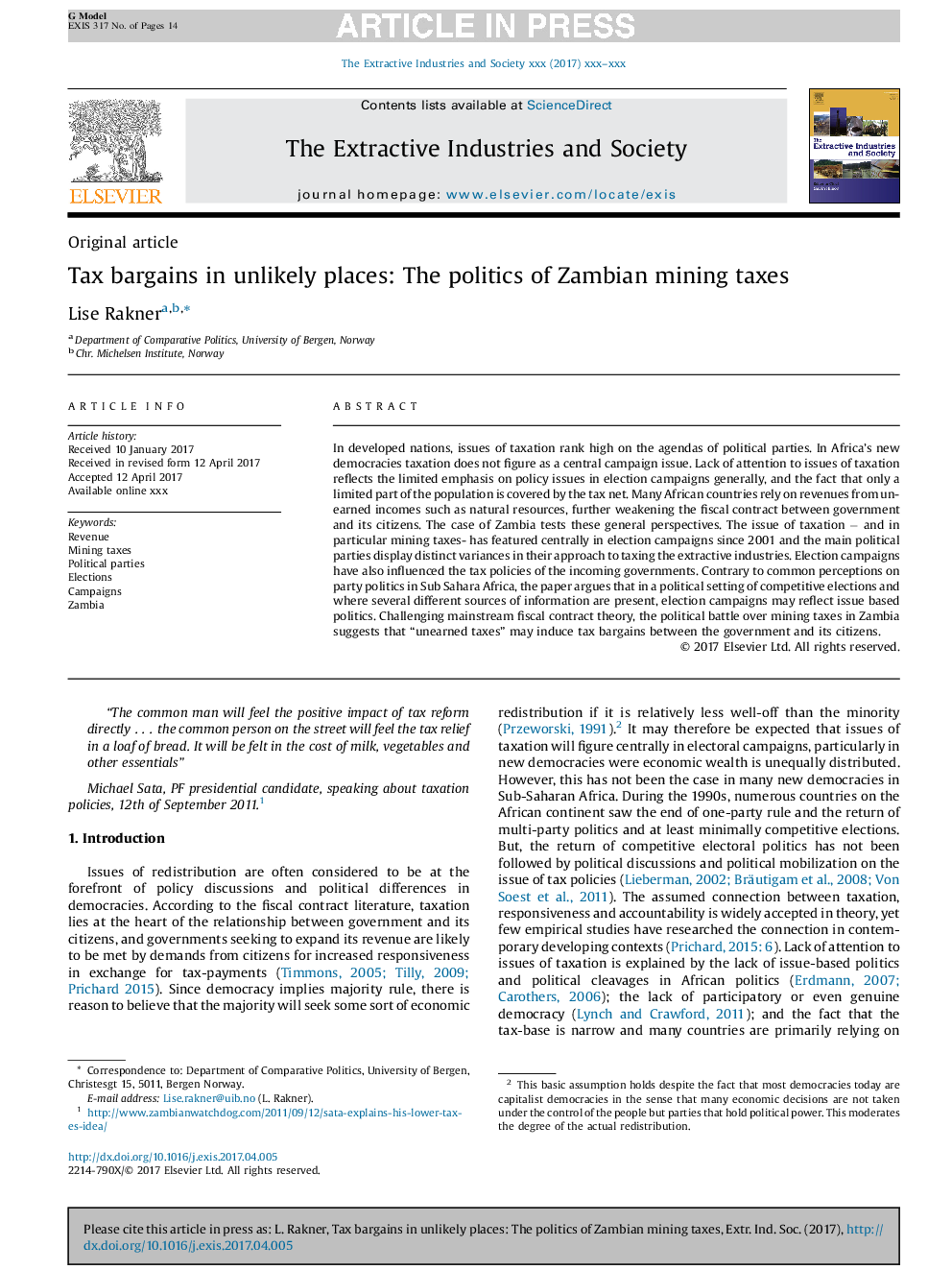| Article ID | Journal | Published Year | Pages | File Type |
|---|---|---|---|---|
| 7454367 | The Extractive Industries and Society | 2017 | 14 Pages |
Abstract
In developed nations, issues of taxation rank high on the agendas of political parties. In Africás new democracies taxation does not figure as a central campaign issue. Lack of attention to issues of taxation reflects the limited emphasis on policy issues in election campaigns generally, and the fact that only a limited part of the population is covered by the tax net. Many African countries rely on revenues from un-earned incomes such as natural resources, further weakening the fiscal contract between government and its citizens. The case of Zambia tests these general perspectives. The issue of taxation â and in particular mining taxes- has featured centrally in election campaigns since 2001 and the main political parties display distinct variances in their approach to taxing the extractive industries. Election campaigns have also influenced the tax policies of the incoming governments. Contrary to common perceptions on party politics in Sub Sahara Africa, the paper argues that in a political setting of competitive elections and where several different sources of information are present, election campaigns may reflect issue based politics. Challenging mainstream fiscal contract theory, the political battle over mining taxes in Zambia suggests that “unearned taxes” may induce tax bargains between the government and its citizens.
Related Topics
Life Sciences
Environmental Science
Management, Monitoring, Policy and Law
Authors
Lise Rakner,
